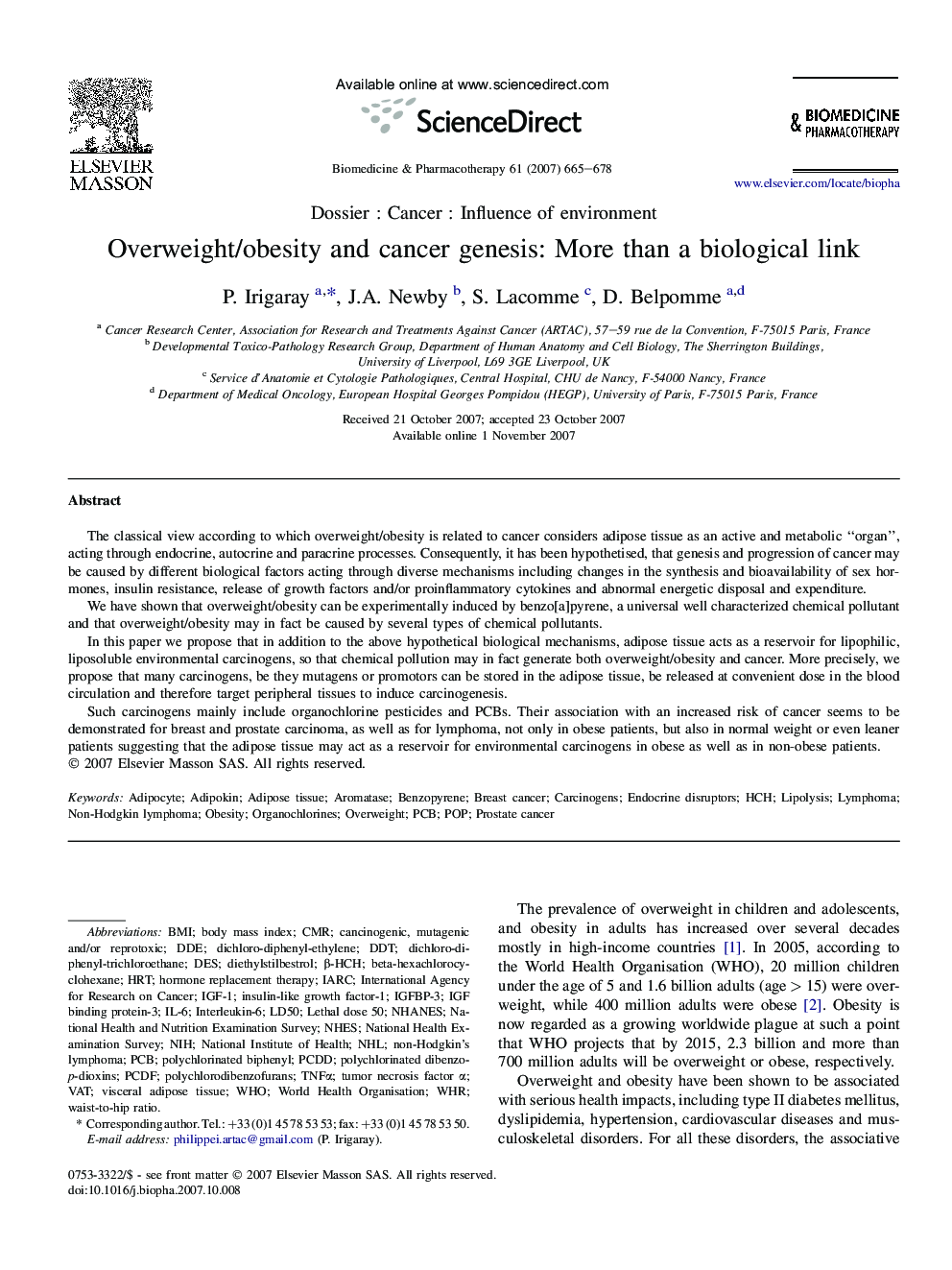| Article ID | Journal | Published Year | Pages | File Type |
|---|---|---|---|---|
| 2525475 | Biomedicine & Pharmacotherapy | 2007 | 14 Pages |
The classical view according to which overweight/obesity is related to cancer considers adipose tissue as an active and metabolic “organ”, acting through endocrine, autocrine and paracrine processes. Consequently, it has been hypothetised, that genesis and progression of cancer may be caused by different biological factors acting through diverse mechanisms including changes in the synthesis and bioavailability of sex hormones, insulin resistance, release of growth factors and/or proinflammatory cytokines and abnormal energetic disposal and expenditure.We have shown that overweight/obesity can be experimentally induced by benzo[a]pyrene, a universal well characterized chemical pollutant and that overweight/obesity may in fact be caused by several types of chemical pollutants.In this paper we propose that in addition to the above hypothetical biological mechanisms, adipose tissue acts as a reservoir for lipophilic, liposoluble environmental carcinogens, so that chemical pollution may in fact generate both overweight/obesity and cancer. More precisely, we propose that many carcinogens, be they mutagens or promotors can be stored in the adipose tissue, be released at convenient dose in the blood circulation and therefore target peripheral tissues to induce carcinogenesis.Such carcinogens mainly include organochlorine pesticides and PCBs. Their association with an increased risk of cancer seems to be demonstrated for breast and prostate carcinoma, as well as for lymphoma, not only in obese patients, but also in normal weight or even leaner patients suggesting that the adipose tissue may act as a reservoir for environmental carcinogens in obese as well as in non-obese patients.
